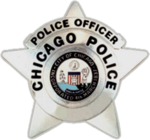Damage
It’s difficult to look beyond the human cost of police abuse.
For decades, too many Chicagoans have been brutalized, wrongfully prosecuted and killed by members of law enforcement sworn to protect them – sewing seeds of cynicism and outright hatred across neighborhoods where healthy relationships with police are needed most.
But an investigation by the Better Government Association shows that in addition to the social cost of abuse, officer misconduct costs taxpayers hundreds of millions of dollars.
Since 2004, Chicago has paid out more than $643 million in damages, legal fees and other costs due to police misconduct. That comes out to more than $53,000 for each of the roughly 12,000 police officers in the Chicago Police Department, or CPD.
This likely puts Chicago at the top of all major cities when the cost of officer misconduct is adjusted for the size of each police force. A Wall Street Journal report analyzing misconduct costs in the 10 largest U.S. cities from 2010 to 2014 found Chicago easily topping the list in per-officer misconduct costs.
A broken system
A deeper dive into the data shows how a small number of officers is driving an outsized portion of misconduct cases.
The Chicago Tribune found that 124 officers were identified in nearly a third of misconduct lawsuits settled since 2009, and over 80 percent of officers were not named in any settlement during that time.
The Chicago Tribune further points out one officer who was named inseven separate misconduct lawsuits settled since 2009, and that’s not even the most of any officer during that time.
This pattern echoes complaint data compiled by the Citizens Police Data Project, or CPDP, which show that 10 percent of officers have accrued 30 percent of all complaints, averaging nearly four times the number of complaints per officer as the rest of the force.
Clearly, CPD has an accountability problem.
Out of the more than 28,000 complaints filed against CPD officers from 2011 to 2015, less than 2 percent resulted in discipline, which typically came in the form of a reprimand or a suspension of less than one week, according to CPDP data.
Often, officers can trade comp time for these minor punishments and stay on the job.
Who’s responsible?
Blame for the CPD’s bad-apple problem should fall squarely on police unions, such as the Fraternal Order of Police, or FOP, and the city leaders who have signed off on decades of collective-bargaining agreements that shield deficient officers from scrutiny.
Privileges enshrined in these agreements include enhanced due process, which gives officers under investigation procedural protections beyond those afforded to average citizens, as well as delayed investigation timesallowing officers to better prepare statements or let evidence go cold.
The FOP is also fighting to destroy decades of officer complaint records, citing a provision in their collective-bargaining agreement that dictates all complaint records must be destroyed within five or seven years, depending on the type of complaint.
Experts have said destroying these records would make it difficult or impossible for Illinoisans who allege they were coerced into false confessions under the reign of disgraced police commander Jon Burge to get new hearings.
A lack of body cameras may have also cost the city dearly in misconduct settlements. An accurate record of encounters may have disproved certain claims.
Thankfully, the city is expanding its body camera program, though in light of this positive move DNAinfo Chicago has reported CPD officers have been deliberately destroying dashcams to block audio capabilities.
The bottom line is simple: Until city leaders stand up to union interests within CPD, certain officers will continue to betray the public trust while costing taxpayers millions.


